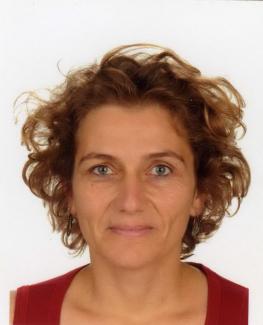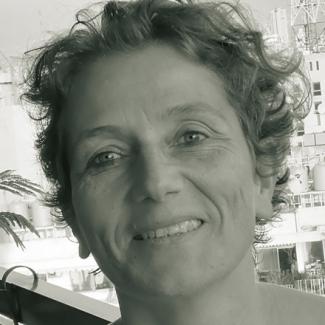Nowadays
Direct aid

It all started with the collection of ventilators. In the summer of 2012, 37-year-old Siba Barada and a few female friends visited Syrian refugee families in Beirut. They asked what they needed and were told that in the humid heat of the Beirut summer, many families were in urgent need of fans. With the help of fund raising by their acquaintances the women bought several ventilators. With the rest of the money they procured milk powder and diapers.
This is how the first project of a group of young Syrians who had fled their home towards Lebanon came about. But more and more refugees arrived in Beirut, and the needs were growing. Siba says that they started with 30 families, and are now caring for more than 1000.
Fund raising in the circle of family and friends was not enough anymore. So they founded an association by the name of “Sarda” (“little story” in English). As an association it is easier to contact other non-governmental organisations (NGOs) and donors, explains Siba, who used to work as an interpreter in Syria before the uprising started.
“Sarda” has six full-time members and lots of volunteers. Nobody receives a salary. All have proper jobs or are studying at university. For the founders of the association, the most important things are direct, non-bureaucratic help and personal contact to the Syrian families in Beirut.
In Syria, 35-year-old Rami Sulaiman worked as an accountant. After he had to flee from his native land, he started to campaign for refugee support. Since autumn of 2012, Rami Sulaiman collaborates with “Sarda”. He relates how he and his fellow campaigners managed step by step to build up a relationship of trust with the refugees: “Many are distrustful and assume that we work in the name of a Syrian political group. Some are so afraid that they are suspicious as soon as someone asks their name. Only with time they learned to trust us.”
At the moment, the work of “Sarda” is focussed on medical treatment of pregnant Syrian refugees, and on the nursery school “Amaluna” (“our hope” in English). This daycare facility in the poor Beiruti neighbour-hood of Sabra is attended by 76 Syrian pre-school children.
“Almost all the kids are poor and live in very confined conditions,” says nurse Nabila. In some cases, two or three families share one small flat. For many children, the premises of the nursery school are the only place they can run around.
To maintain “Amaluna”, the association cooperates with Palestinian and Lebanese partners. The Lebanese-Palestinian organisation PARD (The Popular Aid for Relief and Development) has provided the building. The nurses and volunteers are Palestinians and Syrians. A Syrian doctor has offered to attend patients every week on the premises of the nursery school. “Amaluna” is funded by donations, amongst others, by the German association Schams.
Mona Naggar is a journalist and a trainer for journalism. She lives in Beirut, Lebanon.
naggar@googlemail.com








